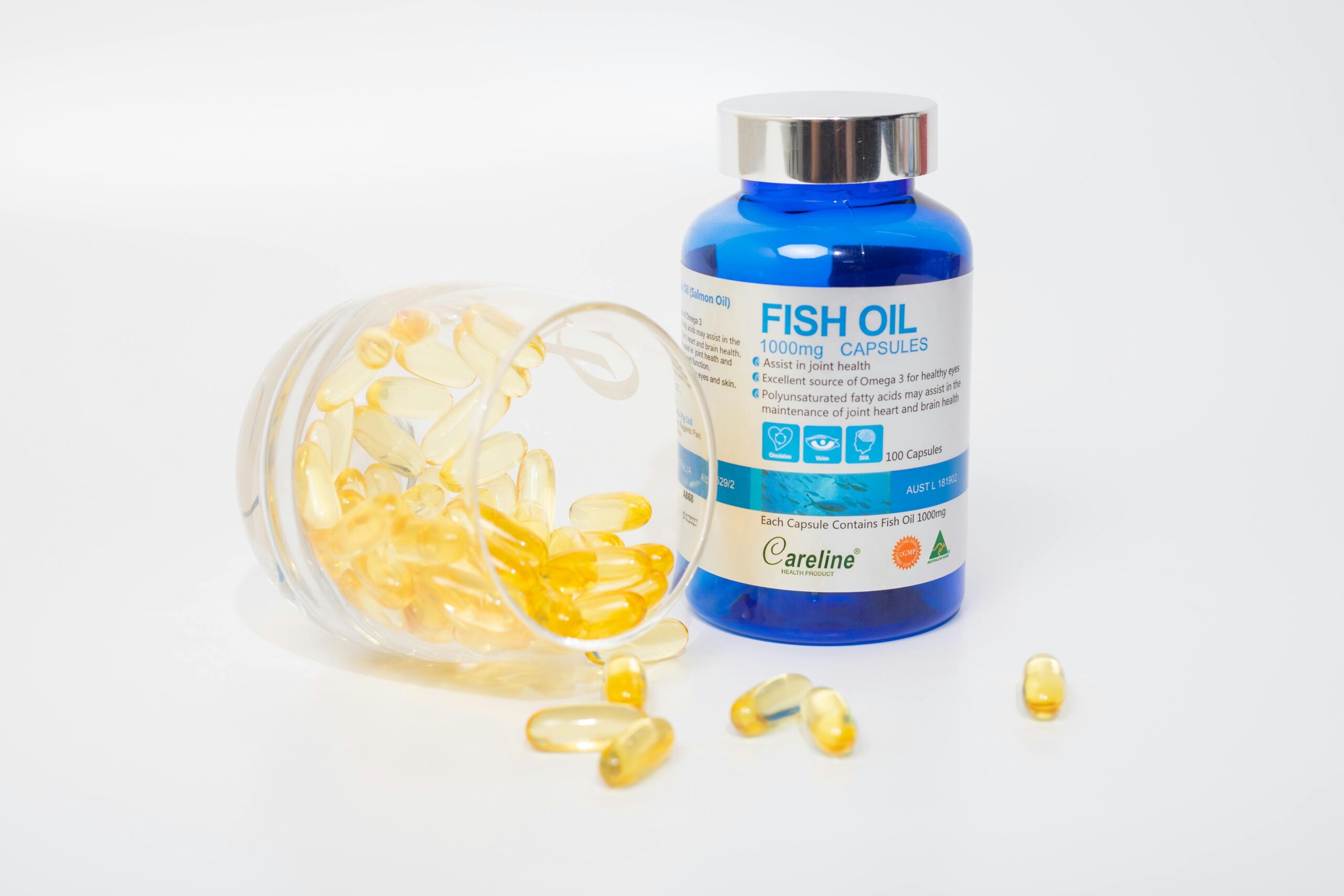Fish oil supplements are widely known for their potential health benefits, particularly for heart health, but their role in cancer prevention remains a topic of ongoing research and debate. Fish oil is rich in omega-3 fatty acids, essential nutrients that our bodies require for various functions, including brain and eye health. Omega-3s, along with omega-6 fatty acids, are types of polyunsaturated fats essential for human health. However, understanding whether they play a role in reducing cancer risk requires careful examination of scientific studies, dietary sources, and the effects these nutrients may have on cancer-related mechanisms.
For more Health Related information : Eat Healthy Stay Fit.
Understanding Omega-3 and Omega-6 Fatty Acids.

Omega-3 fatty acids are essential fats found primarily in fatty fish, fish oil supplements, and plant-based sources like flaxseeds and walnuts. These fatty acids are known for their anti-inflammatory properties, which can support immune health and reduce chronic inflammation—a condition linked to various diseases, including cancer. On the other hand, omega-6 fatty acids, commonly found in vegetable oils and processed foods, have a more complex role. While they are also essential for health, high intake of omega-6s, especially without balancing them with omega-3s, can promote inflammation.
The balance between omega-3 and omega-6 intake may influence health conditions, including cancer. Studies suggest that a higher ratio of omega-3 to omega-6 may reduce the risk of certain cancers. However, the exact relationship between omega-3 intake from fish oil supplements and cancer prevention is still under investigation.
Mechanisms of Omega-3 Fatty Acids and Cancer Prevention.

Several mechanisms have been proposed to explain how omega-3s might lower cancer risk:
- Anti-inflammatory Effects: Chronic inflammation is associated with a higher risk of cancer, as it can lead to cellular damage and increase the likelihood of mutations. Omega-3 fatty acids are known to have anti-inflammatory properties that could counteract this effect, potentially lowering cancer risk.
- Immune System Support: Omega-3s help modulate immune function, supporting a healthy immune system that can detect and destroy abnormal cells, which could otherwise develop into cancer.
- Effects on Cell Proliferation and Apoptosis: Some studies have suggested that omega-3 fatty acids can inhibit cell proliferation and promote apoptosis (programmed cell death) in cancer cells, which may reduce the risk of tumor formation.
- Reduced Angiogenesis: Omega-3s have been shown to reduce angiogenesis (the formation of new blood vessels), which tumors rely on to grow and spread. By limiting angiogenesis, omega-3s may help prevent tumor growth.
These mechanisms, observed in laboratory and animal studies, provide a promising theoretical foundation, but human studies are needed to confirm these effects on cancer incidence in the general population.
The Role of Fish Oil in Reducing Cancer Risk: Findings from Studies.

Several epidemiological studies have investigated the link between fish oil supplements, omega-3 intake, and cancer risk, but the findings have been mixed. Here’s an overview of what research has found in specific types of cancer:
1. Colon Cancer
Colon cancer is one of the most common types of cancer worldwide, and diet plays a significant role in its risk. Some studies have shown that higher omega-3 intake may be linked to a reduced risk of colon cancer, potentially due to omega-3s’ ability to reduce inflammation and support immune function.
A meta-analysis of various studies found that people who consumed higher amounts of omega-3s had a slightly lower risk of developing colon cancer than those who consumed less. However, the studies analyzed varied significantly, and more research is needed to establish a concrete link.
2. Breast Cancer
The relationship between omega-3 intake and breast cancer risk has been widely studied, but the results are inconclusive. Some research suggests that higher omega-3 blood levels might be associated with a lower risk of breast cancer, particularly in women with a high intake of fish or fish oil supplements. However, other studies have found no significant protective effect.
One factor that could explain the mixed findings is the variation in omega-3 intake among different demographics and geographic locations. Studies conducted in regions where fish consumption is high have shown a protective association, while those in areas with lower fish consumption have found weaker links.
3. Lung Cancer
Research on omega-3s and lung cancer is limited, but some studies have found potential benefits. A study conducted in Georgia, for example, suggested that omega-3 intake might be associated with a reduced risk of lung cancer, particularly among non-smokers. However, this relationship is complex and could be influenced by various factors, including overall diet and lifestyle.
4. Prostate Cancer
Prostate cancer research involving omega-3s has produced controversial results. While some studies suggest that a high intake of omega-3s might reduce prostate cancer risk, others indicate the opposite. A well-known study published a few years ago found an association between high blood levels of omega-3s and an increased risk of prostate cancer. This finding sparked debate and led researchers to question whether fish oil supplements are beneficial or harmful for prostate health.
One theory is that the form of omega-3s taken (dietary sources versus supplements) and the balance with omega-6 intake may play a role. More rigorous studies are needed to clarify these relationships.
Myths and Misconceptions Surrounding Fish Oil and Cancer.
The media often exaggerates claims about supplements, leading to common myths about the benefits of fish oil in cancer prevention. Here are some of the common misconceptions:
- Myth 1: “Fish oil supplements alone can prevent cancer.”
While omega-3s have potential cancer-protective properties, no supplement can guarantee cancer prevention. Diet and lifestyle play crucial roles in cancer risk, and relying solely on supplements is unlikely to be effective. - Myth 2: “More omega-3s are always better.”
There is a limit to how much omega-3 the body can use, and excessive intake may not provide additional benefits. Balance with omega-6 intake is also important. - Myth 3: “Fish oil supplements are better than food sources.”
Omega-3s from whole foods like fatty fish, flaxseeds, and chia seeds come with additional nutrients like vitamins, minerals, and antioxidants that may also contribute to cancer prevention.
Dietary Sources of Omega-3s.

While fish oil supplements are a popular source of omega-3s, dietary sources are generally preferred by nutrition experts for long-term health benefits. Here are some of the top food sources of omega-3s:
- Fatty Fish: Salmon, mackerel, sardines, and trout are rich in DHA and EPA, two powerful omega-3s linked to various health benefits.
- Plant-Based Sources: Flaxseeds, chia seeds, and walnuts contain ALA, a type of omega-3 that the body partially converts to DHA and EPA.
- Algae-Based Supplements: For vegetarians and vegans, algae-based supplements offer a direct source of DHA and EPA without relying on fish.
The Importance of a Balanced Diet.

Incorporating omega-3s into the diet through whole foods is a beneficial approach to support overall health and potentially reduce cancer risk. However, it’s essential to maintain a balanced diet rich in vegetables, fruits, lean proteins, and whole grains to promote overall wellness and reduce the risk of chronic conditions.
Studies have shown that populations with diets rich in omega-3 sources, such as the Mediterranean diet, tend to have lower cancer incidence rates. This suggests that a diet combining various nutrients, rather than isolated supplementation, may offer the most protective benefits.
Should You Take Fish Oil Supplements?
Fish oil supplements can be beneficial for people who have low omega-3 intake, but their role in cancer prevention is still unclear. If you’re considering fish oil supplements, it’s best to consult with a healthcare provider to determine the appropriate dosage and evaluate potential benefits based on your health needs.
Supplements should not replace a balanced diet, and they may not provide additional benefits if you already consume enough omega-3s through food. For individuals with dietary restrictions or low omega-3 levels, fish oil supplements can offer an accessible source of these essential fatty acids.
Conclusion.
While omega-3 fatty acids found in fish oil have shown promising anti-inflammatory and immune-boosting effects, the evidence on whether they can lower cancer risk is still evolving. Different studies have produced mixed results, and more research is needed to establish clear associations.
For now, focusing on a diet rich in whole foods that provide omega-3s—like fatty fish, flaxseeds, and walnuts—along with a balanced intake of other nutrients, appears to be the best approach. Maintaining a healthy lifestyle with regular exercise, avoiding tobacco, and moderating alcohol intake are also essential for reducing cancer risk.
Fish oil supplements may offer a convenient option to boost omega-3 levels, but they are not a guaranteed shield against cancer. As research continues, staying informed and consulting with trusted medical sources can help you make the best decisions for your health.
Our YouTube : Health and Fitness.




